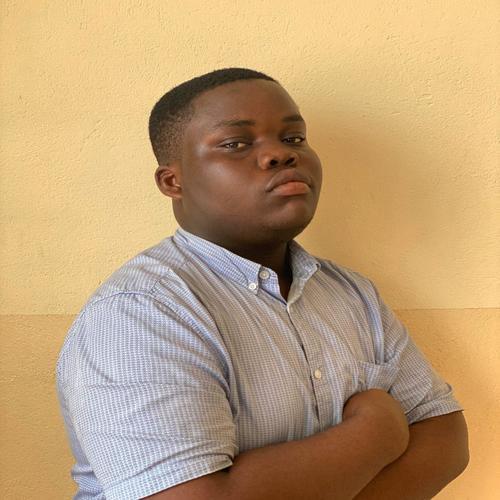A Tribute to Heroes
Introduction: The Global Significance of Black History Month
February, known as Black History Month (BHM), is a time of annual celebration and remembrance of important people and events that took place in the diaspora and remembrance of the racial struggle around the world. Originating from the United States, this month also resonates deeply in Ghana. To celebrate the Black History Month in Ghana, the United States embassy actively collaborates with educational institutions and Non-profit organisations across the country. We join the celebration by sharing stories of some brave Ghanaians with the world in the light of black excellence.
The Origin of Black History Month: From 'Negro History Week' to a Global Celebration
Carter. G. Woodson - an American historian, educator, publisher, and scholar.
The inception of Black History Month can be traced back to Carter G. Woodson. He was a groundbreaking American historian and educator and the father of the Black Month History. On February 7, 1926 he initiated the first celebration - ‘Negro History Week’. The idea blossomed, gaining recognition in the United States, Ireland, the United Kingdom, and Canada. February was chosen to coincide with the birth months of Abraham Lincoln and Frederick Douglass, key figures in the abolishment of slavery. Black history month became a month-long celebration in 1976. The United Kingdom's first celebration was in 1987 through the leadership of Akyaaba Addai-Sebo, a Ghanaian who served as coordinator of special projects for the Greater London Council (GLC). Today a Christmas ornament of Woodson hangs on the White House's Christmas tree every year.
What we need is not a history of selected races or nations, but the history of the world void of national bias, race hate, and religious prejudice.
Prominent Figures in Ghanaian Black History
Dr. Kwame Nkrumah: A symbol of Ghanaian pride
Unarguably one of the greatest Ghanaian ever known. Dr. Nkrumah was born in Ghana on 21st September 1909. He became the first prime minister and President of Ghana. He strived to free his nation from the ties of colonisation, leading the nation to independence in 1957, making Ghana the first West African country to break free from colonial rule. His efforts transcended national borders, contributing to the formation of the African Union. The organisation was established with a goal to maintain peace and foster unity among all African countries. Dr. Nkrumah was a major influence who helped and inspired other African leaders to fight for independence. He died at 62 in Romania, Bucharest on 27th April 1972. To learn more about his life and work, visit Kwame Nkrumah Mausoleum and Memorial Park in Accra. Nkrumah was indeed an embodiment of the values of Black History Month.
Flt. Lt. Jerry John Rawlings
Known affectionately as 'J.J', Rawlings was instrumental in a driving force in the development of Ghana’s post-independence. His leadership after a military coup and subsequent democratic election marked a significant era in Ghana's history.
He was born in the Volta Region of Ghana. Rawlings came into power in 1979 as a flight lieutenant of the Ghana air force after a coup d’état. Before that, he had led an unsuccessful coup which nearly resulted in his death. J.J. despised bribery and corruption bitterly. He was a pan-African who had a deep love for his country. Jerry John Rawlings was an advocate for a fair and just system in Ghana, one that upheld justice and equality for all its citizens.
Seizing the opportunity to effect change, he took over the military forces and led a revolutionary movement that significantly sped up the nation's development. In 1992, Rawlings transitioned from his military role, establishing the National Democratic Congress (NDC). His commitment and fight for democratic principles was further shown when he was democratically elected as president, serving two impactful terms that shaped the future of Ghana. J.J. Rawlings died in November 2020 at age 73. Today we remember him as the man who became the change he wanted to see. This is a true mark of outstanding Black leadership.
Yaa Asantewaa: A beacon of inspiration for Ghanaian women to this day
The mere mention of Yaa Asantewaa 's name serves as a beacon of inspiration for every Ghanaian woman, instilling the belief that she can achieve anything in this life. Yaa Asantewaa 's leadership during the British colonial period exemplified courage and resilience. Her fierce defiance against colonial forces is a testament to her indomitable spirit.
Yaa Asantewaa is one of Ghana’s greatest women. Yaa Asantewaa , an emblem of Ghanaian female strength, was born in 1840 and was the eldest of two siblings. She became the Queen Mother of Ejisu. The British, in their colonial pursuits, exiled King Prempeh I and the Ashanti royal council to Seychelles. The situation escalated when Fredrick Hodgson, the British governor-general, audaciously demanded the Golden Stool – the sacred symbol of the Ashanti nation, embodying the soul of the people and revered as a priceless artefact.
During her reign, the British oppressed the Asantes, exiled the King of the Asante kingdom, Prempeh I, and the members of the Ashanti royal council to Seychelles.
In secret meetings, the Ashanti leaders debated their response. While some preferred avoiding further conflict with the British, Asantewaa took the Governor’s demand for the stool as a blatant insult and mockery of the Ashanti people and heritage. She then made the famous speech:
How can a proud and brave people like the Asante sit back and look while white men took away their king and chiefs, and humiliated them with a demand for the Golden Stool? The Golden Stool only means money to the white men; they have searched and dug everywhere for it. I shall not pay one predwan to the governor. If you, the chiefs of Asante, are going to behave like cowards and not fight, you should exchange your loincloths for my undergarments (Montu mo danta mma me na monnye me tam).
Soon after she took the title of the war-lord of the Ashanti kingdom and led 5,000 men to the “Yaa Asantewaa war”. Although the battle did not go in their favour, they never gave up the Golden Stool and stood in the defence of the Ashanti dignity. Yaa Asantewaa will forever remain an outstanding figure of excellence in the history of Black women around the world.
Nana Prempeh I
Nana Prempeh I was the youngest king of the Ashanti Kingdom who ascended the throne at 18. Despite his youthful age and minimal experience; he demonstrated exceptional leadership. Nana Prempeh led the Ashantis to many wars in resistance to oppression from the British during colonisation. He fought for the unity of the Ashanti Kingdom and to restore the glories of the kingdom. Nana Prempeh I was one of the key figures in gaining independence of the Ashanti Kingdom from British invasion.
Theodosia Okoh
Theodosia Okoh cemented her name in Ghana’s list of outstanding people by creating the design of the Ghana flag.
She was a pan-Africanist born on the 13th of June 1922 in Ghana. After the attainment of independence in 1957, the country yanked off the Union Jack (the flag of the British) and needed a new flag to represent Ghana, its ideas, values, and beliefs. Theodosia created the perfect design that would become the present-day flag of Ghana with red, gold, and green colours and a Blackstar in the middle. Interestingly, Theodosia was also the one who pioneered the playing of hockey in Ghana. She is regarded as a stateswoman and was awarded the grand medal by the government.
The Legacy of Ghanaian Heroes Inspiring Future Generations
These are a few of the outstanding Ghanaians who form part of the Black history celebration. Their actions and initiatives were pivotal in the development of Ghana as well as in the broader struggle of the black race. When you visit Ghana, take some time and visit the Kwame Nkrumah mausoleum and other museums to learn more about these outstanding people who have left their legacy for the future generations to remember and get inspired by.

Hi, I’m Desmond, I am a GhanaTRVL Insider.











Comments